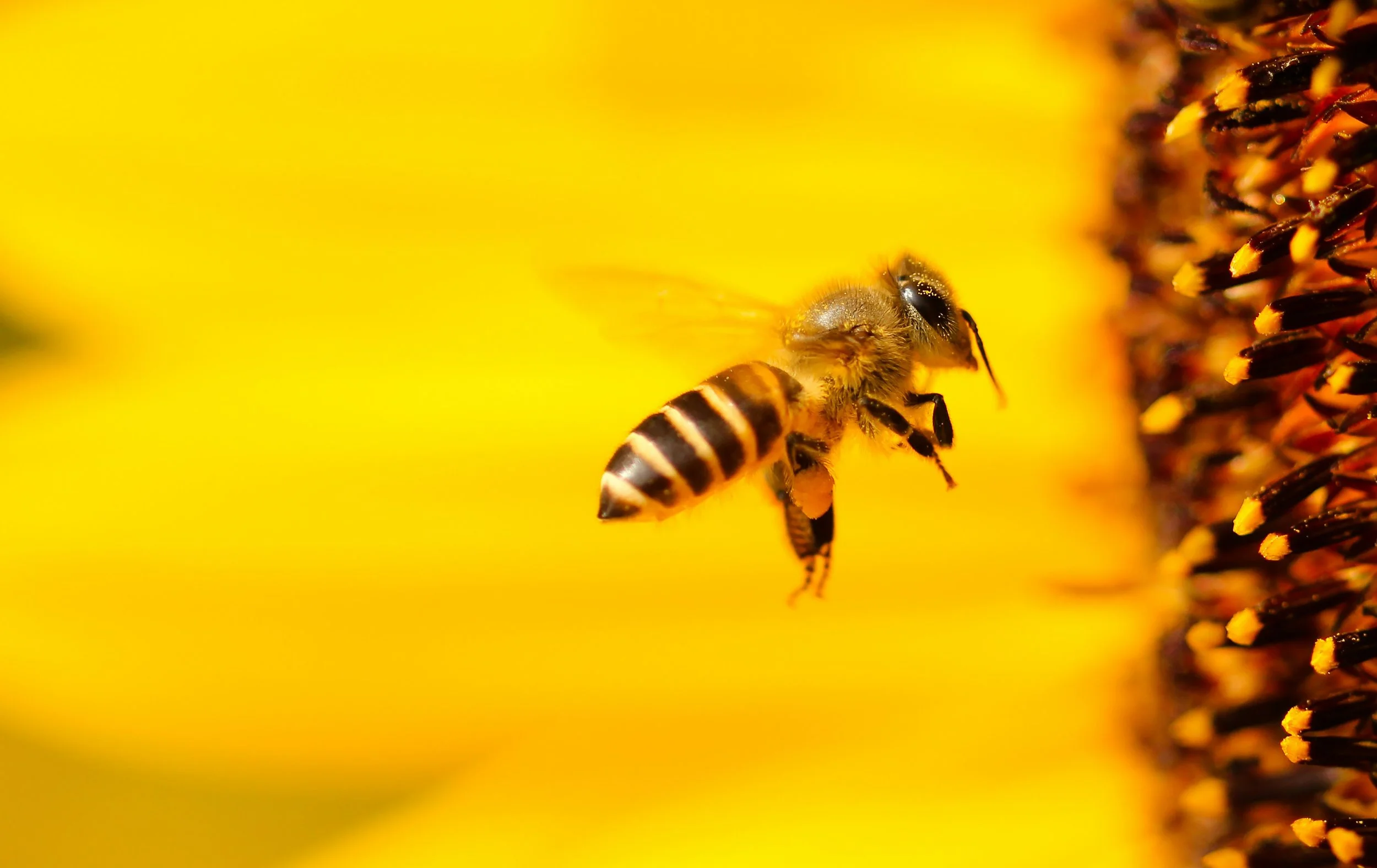
Bee
Thankful!
Bees are vital to the preservation of ecological balance and biodiversity in nature. They provide one of the most recognizable ecosystem services, “pollination”, which makes most food production possible.
-
• One-third of all the food we eat depends on bees and of the 100 crop varieties that provide 90% of the world’s food, 71 are pollinated by bees.
• Honeybees alone pollinate 80% of all flowering plants, including more than 130 types of fruits and vegetables
• The journey of bees begins with manure and fertilizer. It is used to enrich the soil providing essential nutrients that help seeds germinate and plants grow.
• Water, a fundamental element for life, aids in the absorption of these nutrients from the soil, allowing the plant to grow strong and healthy.
• As the plant matures on the fertile land, it develops vibrant flowers rich in nectar and pollen.
• Bees are attracted to these flowers for their nectar, which they use to create honey and, in the process, they pollinate the plant, contributing to its reproductive cycle and the growth of new plants.
• This illustrates a symbiotic relationship, where bees and plants rely on each other for survival and growth.
• Despite their profound importance for the food we eat, bee populations are declining at an alarming rate.
• Last winter (2023), Canada had its largest honeybee colony loss in the past 20 years, with 46% of colonies perishing nationally.
• Global warming, pesticide use, habitat destruction, and air pollution all contribute to bee mortality.
• By understanding the vital role bees play in our ecosystem and food production and making conscious choices to help, we can contribute to the conservation of bees and the vital services they provide.
-
• Plant native and bee-friendly plants in your garden. Ensure there's a variety of plants that bloom at different times of the year, providing bees with a continuous source of nectar and pollen.
• Limit or avoid pesticides as they can be harmful to bees. If possible, opt for natural pest control methods, or use pesticides sparingly and responsibly.
• Provide a bee watering station. Bees need water just like any other creature: You can create a simple bee watering station by filling a shallow dish or birdbath with water and placing small stones in it for bees to land on.
• Allow parts of your garden to grow wild to provide a habitat for bees, including bumblebees and solitary bees, which often nest in the ground or in piles of wood.
• Purchase honey and other bee products from local, sustainable beekeepers. This supports the local economy and promotes sustainable practices.
• If you have space and the right conditions, consider installing a bee house for solitary bees or even keeping a hive of honeybees.
-
• Replace non-native plants with native ones. Native plants are more likely to attract and provide sustenance for local bee species. They are also better adapted to the local climate and soil, reducing the need for water and artificial fertilizers.
• Replace pesticides with natural pest control methods. This can include introducing beneficial insects or manually removing pests.
• Replace non-organic foods with organic ones. Organic farming practices are generally more bee-friendly, avoiding the use of synthetic pesticides and GMOs. By choosing organic, you can help support a more sustainable and bee-friendly food system.
Thanks to our project partners for their support - Town of the Blue Mountains & David Suzuki Foundation









